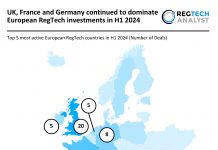After months of speculation, governmental hearings and partners abandoning the project, it seems as if the Facebook-led cryptocurrency Libra has taken a big step towards being recognised by regulators.
The Swiss Financial Market Supervisory Authority (FINMA) has received an application from the Geneva-based Libra Association for a payment system licence. While this marked the beginning of the licensing process under Swiss supervisory law, the regulator noted that the “outcome and duration of the procedure remain open.”
Moreover, it noted that the application under review is based on an updated whitepaper from the Libra Association. FINMA added that the application was still not complete in all aspects, but that this was not unusual for startups looking for a licence.
FINMA also said that the new application “differs considerably from the project originally submitted”, particularly regarding “the Libra payment system also supporting single-currency stable coins as well as the multi-currency Libra payment token.”
As it embarks on the process of analysing and reviewing the application, the Swiss body said that it is required to take extra care for projects that impose particularly big risks for the financial markets.
It will look into if strict national and international standards for payment infrastructures as well as for combating money laundering can be upheld.
Those are just some of the risks that lawmakers and market stakeholders have expressed concern about since Facebook announced the project back in June 2019. While it announced the project as well as a digital wallet that called Calibra that would be used to process payments with the new cryptocurrency, Facebook was only one out of 27 original members of the Libra Association.
Nevertheless, it was Facebook and its CEO Mark Zuckerberg that have been the loudest advocates of the new stable coin and, as a result, has also been the target of most of the scrutiny.
Zuckerberg has since the announcement Libra been attending a US congress hearing and has been questioned by the EU.
Several lawmakers have been very vocal in their criticism, worrying that the launch of a digital currency backed by several of the biggest private actors in the world would cause considerable uncertainty in the markets and risk undermining countries’ ability to issue and regulate monetary policies.
Maxine Waters, the Democratic chairwoman of the House Financial Service Committee, and the French finance minister Bruno Le Marre have been two of the most vocal detractors of Libra. Other lawmakers who have openly been worried about the cryptocurrency project include the EU’s finance commissioner and a board member of the European Central Bank.
In the face of the increasing scrutiny, several of the original backers of Libra – PayPal, Stripe, Visa and Mastercard – have abandoned the project.
It is against this background that FINMA now has to consider the Libra Association’s application. The regulator said that it “will neither provide public information on the status of the ongoing procedure nor speculate on when it may be complete.”
It added that “FINMA has been in close contact with the Swiss National Bank and more than 20 other supervisory authorities and central banks from around the world since the start of its dealings with the Libra project.”
Copyright © 2018 RegTech Analyst






